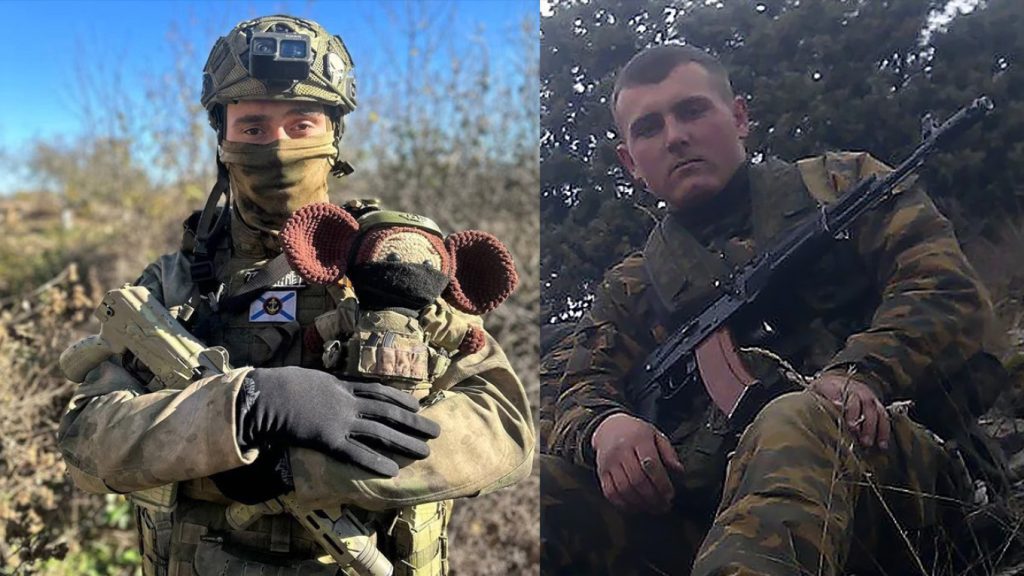Russia jails soldiers who killed entire family in Ukraine
4 min read
Anton Sopov and Stanislav Rau.
A Russian court has sentenced two soldiers to life imprisonment for the brutal killing of a family of nine in occupied Ukraine, marking a rare instance of the country holding its military accountable for war crimes. The murder of the Kapkanets family occurred in the Donetsk region in 2023 and has drawn attention due to the high number of victims, including young children.
Anton Sopov, 21, and Stanislav Rau, 28, were convicted of murdering the entire Kapkanets family while they were celebrating a birthday at their home. The victims included Eduard Kapkanets, his wife Tatiana, their adult children and their spouses, as well as two grandchildren—one aged 9 and the other just 4 years old. Ukrainian ombudsman Dmytro Lubinets confirmed the attack occurred while the family was celebrating a birthday, making the tragedy all the more poignant.
The Crime and Investigation
Details surrounding the case remain unclear, particularly whether the soldiers admitted guilt, as the trial was conducted behind closed doors for reasons related to military secrecy, according to Russian media outlets. However, prosecutors reported that Sopov and Rau were responsible for killing the family members in cold blood. Ukrainian officials at the time of the incident suggested that the family was murdered because they had refused to surrender their home to the Russian troops.
The pair of soldiers were found guilty of committing murder “motivated by political, ideological, racial, national, or religious hatred,” according to Russia’s state-run news agency Tass. The attack took place in the context of Russia’s invasion of Ukraine, which began in February 2022. The Kapkanets family’s home was located in the Donetsk region, a key area that fell under Russian control early in the war.
The town of Volnovakha, where the family lived, had been captured by Russian forces just weeks after the invasion began. Much of the town has been destroyed since then, with civilians bearing the brunt of the conflict. Although the conviction of the two soldiers marks a significant development, it is notable that it remains one of the very few instances in which Russian soldiers have been held accountable for actions in Ukraine.
Russia’s Denial of War Crimes
The Russian government continues to deny all allegations of war crimes committed by its forces in Ukraine, despite overwhelming evidence to the contrary. Numerous reports from international organizations and media outlets have documented atrocities, including the bombing of civilian targets and the execution of prisoners.
One of the most infamous incidents occurred in March 2022, when Russian forces bombed a theater in Mariupol, a building that had been sheltering hundreds of civilians, including women and children. The attack on the theater, which resulted in significant casualties, was widely condemned as a war crime. Other atrocities, such as the killings of civilians in Bucha, further exacerbated concerns about Russian military actions in Ukraine.
Russian forces are also accused of operating a network of torture chambers across the areas they occupy in Ukraine. In these locations, prisoners of war and Ukrainian civilians have reportedly been subjected to brutal interrogations and torture, with some even being executed.
International Reactions and Legal Action
The United Nations has condemned Russian forces for widespread human rights abuses in Ukraine, including allegations of rape, torture, and extrajudicial killings. The International Criminal Court (ICC) has issued an arrest warrant for Russian President Vladimir Putin, accusing him of war crimes related to the abduction of Ukrainian children and other offenses committed by Russian forces during the ongoing conflict.
Despite these international efforts, Russia has maintained its position that no war crimes have taken place. In response to growing evidence, the Russian government has employed a strategy of denial, blaming the West and Ukrainian forces for spreading misinformation and using the allegations as part of an anti-Russian propaganda campaign.
The conviction of Sopov and Rau, while rare, signals a potential shift in how Russia handles war crimes committed by its military, even as the broader pattern of impunity continues. The trial is a small step toward justice for the victims of the conflict, but it is unlikely to signal any broader change in Russia’s stance on accountability for actions in Ukraine.
Conclusion
The sentencing of two Russian soldiers to life in prison for the murder of the Kapkanets family is a rare instance of the Russian judicial system holding its military personnel accountable for war crimes in Ukraine. While the trial provides a modicum of justice for the victims, it is overshadowed by the broader context of Russia’s ongoing denial of war crimes, despite the mounting evidence of atrocities committed by its forces. The international community, led by organizations like the United Nations and the International Criminal Court, continues to pressure Russia for accountability, but the road to justice for the victims of the conflict remains long and uncertain.





